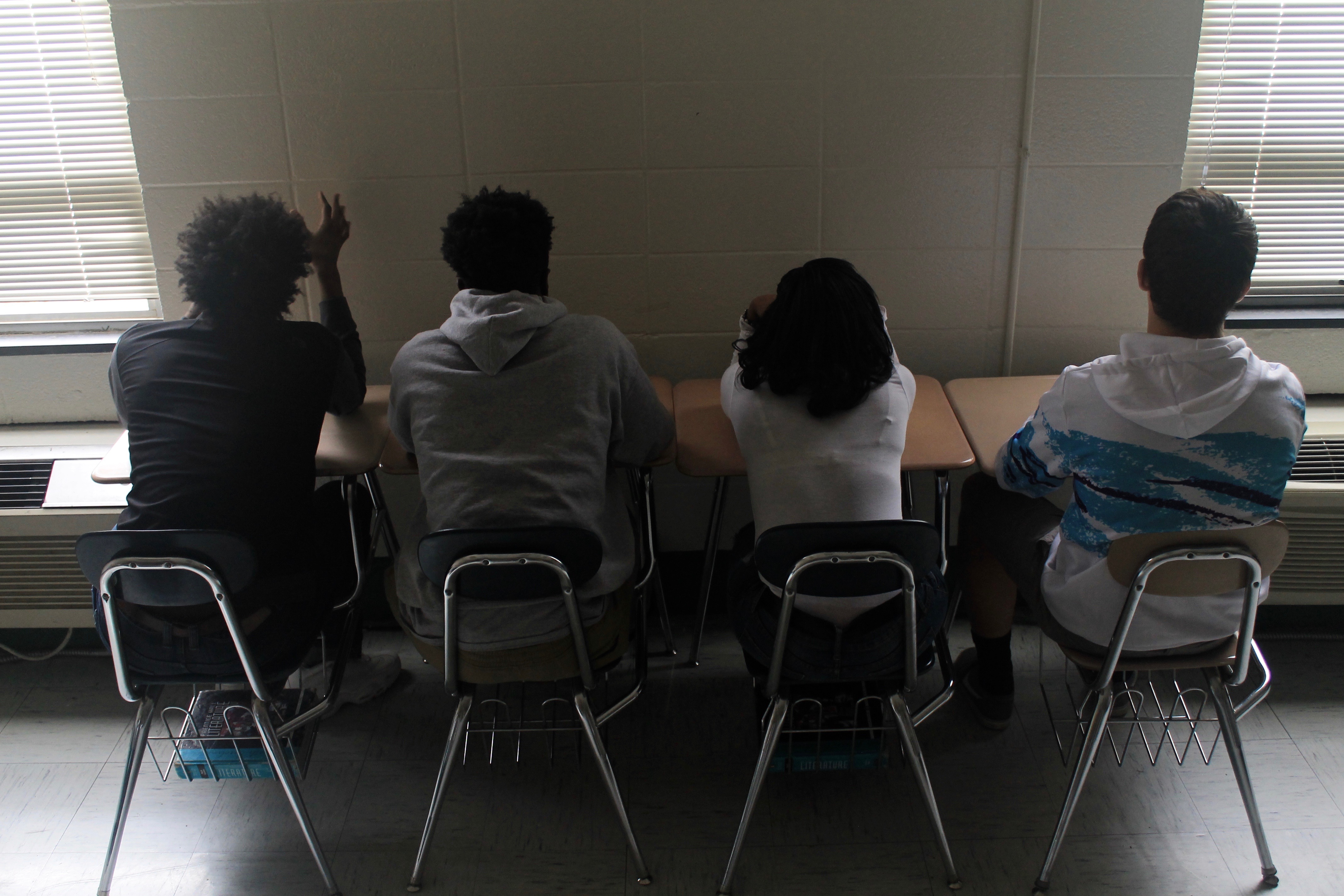In our society people are taught that if they do not follow the rules, there is a punishment; this ideology is prevalent in our public education system. There is a code of conduct and if the rules are broken, a suggested consequence is given. However, the true effectiveness of these consequences and the fairness at which they are given to each student are highly debated questions across America.
According to the Civil Rights Data Collection, at Northwood in 2013, African-American students were 3.3 times more likely to be suspended than Caucasian students. At the national level, African-American students are 2.6 times more likely to be suspended than Caucasian students.
Social worker Preston Ferguson believes that racial bias in our school system exists and thinks that African-American students are targeted more.
“I think [racial bias] exists in every system that there is race,” Ferguson said. “In terms of statistics, I think that African Americans are targeted more. If you look historically, slavery, civil rights, Jim Crow, African Americans and Latinos, any minority groups have been racially biased against and have been suffering discrimination, prejudice, since civilization started. So in terms of these statistics, I think that African Americans are targeted more…. For example, let’s say you have an African-American student, a white student and a Latino student, and the African-American student has a history of suspensions, they have a history of doing things in school that they aren’t supposed to do, then I think that it is used against them for their next suspension. So I definitely think there is a racial bias within the school system.”
Junior Corey Smith feels like there might be a racial bias when teachers decide to punish certain students over other students for the same crime.
“Well, when I’m talking and a white person is talking, [the teacher] just decides to come at me,” Smith said. “It makes me mad because we both are doing the same thing; we should both get the same punishment.”
Assistant principal Janice Giles is aware of the statistics that show that African-American students are being suspended at higher proportions, yet she feels that Northwood is unbiased when suspending students.
“I think we need to look at the underlying issues of why are these students being suspended more often,” Giles said. “I think we are very consistent with our student code of conduct… and the suggested consequences outlined in the Board of Policy. Administrators here are consistent with, if a white student skips school, they are going to get two days of Out of School Suspension (OSS), and if a black student skips school, they are going to get the two days of OSS. So there might be infractions where black students are committing more crimes, so they are getting suspended at a higher rate.”
Ferguson believes that students’ lower socioeconomic status plays a major part in their behavior at school.
“I think, generally, minorities are on the lower spectrum in terms of their socioeconomic status, and if you look at society, people who are on the lower spectrum of social class commit more crimes,” Ferguson said. “If you apply that to the school setting, you have people who don’t have access to resources, don’t have access to opportunities, don’t have the same experience to the people who do have access to those opportunities…. Crime doesn’t have race; I think that all people commit crime. However, I think that minorities are definitely targeted more.”
Principal Dr. Justin Bartholomew thinks that our schools systems have been set up historically for African-Americans to fail, and that fact is reflected in these statistics. He thinks that giving each student what they need is better than giving every student the same punishment.
“I don’t think [African Americans] are being suspended more than white students, but they are being suspended at a higher rate,” Bartholomew said. “If I provide a structure to someone who has historically not been successful in that structure, what kind of success is that person going to have? Not much. So how do you correct that…? We talk about equality and equity. People love equal, but I’m more about equity than I am about equality. Equity says I’m going to give [each student what they need]. But the Office of Civil Rights is not going to like that, because they are going to look at me and say, ‘You are being arbitrary in how you do that….’ The more detail [you add to the handbook], the more structure you’re going to have, and is that structure going to benefit or harm this group of people?”
While the increasing awareness of the racial gap in public school suspensions in our country is a highly discussed topic, Bartholomew thinks that the gender gap in public school suspensions is overlooked. According to U.S. Department of Education data, males receive 71 percent of school suspensions.
“If you want to talk about the biggest difference in suspensions… males to females,” Bartholomew said. “The gap is extremely high…. I think the bigger underlying question is why are males being suspended more than females? The initial and obvious thing, like 150 years ago, is that the structure of whatever our public education system is not super compatible for male behavior and not allowing for male behavior. If you ask someone, ‘Hey you need to sit there, be quiet and learn’…, who is more likely to get up and cause a stir around? A male. So when you have something like that, it isn’t very conducive to males.”
There are many different perspectives when questioning the effectiveness of ISS and OSS. Social worker Saundra Gardner thinks that ISS and OSS are effective to a certain degree, but making a child miss class is harmful to the student.
“I think that [ISS and OSS] are in place because of the behavioral issues that we face with our students, and there has to be some type of consequence,” Gardner said. “I think that ISS is good to a certain point. However, once you have been out so much that you have missed the classes that you are trying to pass, that’s not effective for me.”
Ferguson believes that we can make our school punishment more effective by combining discipline with “spiritual” outlets.
“Personally, from my standpoint, kids need more self-reflection,” Ferguson said. “They need more outlets and more enrichments; meditation, prayer or spiritual outlets could be infused with disciplinary actions. There are other alternatives for students besides suspension. When you suspend a child, they are not in the classroom. That is why we are all here, to make sure students are successful inside and outside the classroom. Students can’t get everything they need if they are being suspended. I’m not saying suspension is wrong and we shouldn’t suspend kids, but I think we need alternative methods for student success and there are other alternatives besides suspension.”
Bartholomew, who says he “hates” ISS, thinks community service would be a beneficial alternative to ISS and OSS because by doing something wrong, students then get to go make a positive impact in their community.
“To me, the community service piece is always a better option,” Bartholomew said. “If you’re doing community service, you are getting that person who has done something and now they are giving back and making up for what they have done.”
– By Hannah Gail Shepherd



